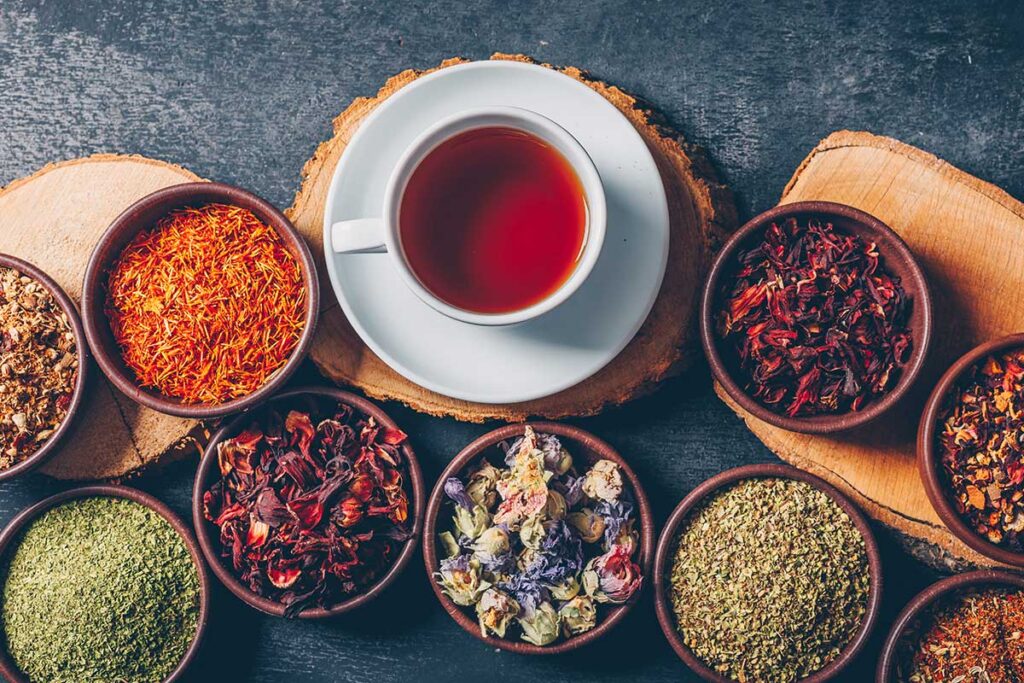Last Updated on November 13, 2023 by Cathy

Hydration – it’s an important topic and most people know the importance of staying hydrated. But, how many glasses of water did you drink today? Eight, four, maybe one? Dehydration is a common condition that affects people of all ages. According to one study, up to 75% of Americans are chronically dehydrated.
Eating the standard American diet can lead to dehydration. Processed foods, sugary beverages, and high sodium can lead to dehydration.
- High Sodium Intake. Processed and fast foods are typically high in sodium (salt). This can lead to increased thirst and fluid retention. Excessive sodium can cause dehydration without enough water.
- Sugary Beverages. High consumption of sugary drinks like soda can lead to increased urine output. This and cause dehydration if not accompanied by enough water intake.
- Lack of Whole Fruits and Vegetables. Fresh fruits and vegetables are naturally hydrating due to their water content. They help keep you hydrated.
- Not Drinking Enough Water. Many people on the standard American diet may need to drink more water. It’s a diet high in processed foods and high sodium which are dehydrating.
- Bad Tasting Tap Water. The taste and quality of tap water can vary from one location to the next. Many people may have experienced tap water that doesn’t taste or smell pleasant. When I was growing up, the city tap water tasted disgusting. I purposely avoided drinking water or added a flavored drink mix and sugar.
Dehydration and Multiple Sclerosis

Image by Freepik
Multiple sclerosis (MS) does not cause chronic dehydration. However, people with MS may limit water due to their symptoms. Mobility or swallowing problems may cause someone to drink less. Bladder issues are another reason for people to reduce their water intake.
Avoiding embarrassment isn’t a reason for chronic dehydration. Chronic dehydration can have several negative effects on the body over time, including:
- Cardiovascular Effects. Dehydration can lead to decreased blood volume, affecting the heart. Dehydration thickens the blood with fewer fluids. Thickened blood strains the heart and raises cardiovascular risk. People with MS have a higher risk for cardiovascular disease.
- Digestive Problems. MS can cause digestive issues such as constipation, bladder and bowel issues, difficulty swallowing, and gastrointestinal symptoms such as difficulty swallowing.
- Fatigue. Dehydration often leads to feelings of tiredness and reduced physical performance. Fatigue is a common complaint with MS patients.
- Increased Risk of Heat-Related Illnesses. Dehydration raises heat illness risk by disrupting temperature control. People with MS have a higher risk of a heart attack.
- Kidney Issues. Dehydration strains kidneys, risking stones and infections.
- Reduced Cognitive Function (brain fog). Dehydration may impair cognitive function, affecting memory, concentration, and mental clarity. Many people with MS complain about cognitive changes.
- Skin Problems. Dehydrated skin is more prone to dryness, flakiness, and premature aging.
- Weakened Immune System. Chronic dehydration weakens immunity, raising infection risk. MS weakens the immune system, so staying hydrated is important. Staying hydrated is important for everyone, especially for people with MS.
How to Stay Hydrated

Image by prostooleh on Freepik
Water is vital for health and natural body functions. Including the elimination of waste products and toxins. Hydration supports kidney and waste removal.
It’s also important to drink filtered water whether you’re on city water or on a private well. This helps remove contaminants, impurities, and harmful substances in the water. It also improves the taste.
Tips for staying hydrated:
- Carry a reusable water bottle. Having a water bottle with you makes it easy to sip water throughout the day.
- Create a schedule. Choose specific times to drink water, such as before or after meals.
- Eat hydrating foods. Eat fruits and vegetables with high water content, such as watermelon and cucumbers.
- Flavor your water. Add citrus, cucumbers, or berries to your water for better taste.
- Make it a habit. Link drinking water to other daily routines, like taking a sip each time you check your email or during a TV show.
- Set reminders. Use smartphone apps or alarms to remind yourself to drink water at regular intervals.
- Stay mindful. Pay attention to your body’s signals for thirst, and drink water when you feel thirsty. Feeling thirsty is a sign of dehydration.
- Track your intake. Keep a daily water intake log or use a water tracking app to track how much you’re drinking.
- Use a straw. Some people find it easier to drink more water when using a straw.
Caffeine is a natural stimulant that affects the central nervous system (CNS). It’s best to avoid caffeinated drinks to keep your CNS calm and relaxed.
Herbal Teas

Image by 8photo on Freepik
Herbal teas (without caffeine) can offer a variety of health benefits, depending on the specific herbs used. Here are some common benefits associated with herbal teas:
- Anti-inflammatory effects. Turmeric and ginger teas have anti-inflammatory properties that can help with conditions like MS.
- Antioxidant content. Many herbal teas are rich in antioxidants, which can help protect cells from damage and reduce the risk of chronic diseases.
- Digestive aid. Peppermint, ginger, and fennel teas can help soothe digestive discomfort and reduce indigestion.
- Hydration. Herbal teas, like most non-caffeinated beverages, can contribute to daily fluid intake and help maintain hydration.
- Immune support. Echinacea and elderberry teas are known for their potential immune-boosting properties.
- Relaxation and stress relief. Herbal teas like chamomile and lavender can promote relaxation and reduce stress.
- Sleep aid. Valerian root and passionflower teas may improve sleep quality and help with insomnia.
One of my favorite teas is Detox by Yogi. It’s a cleansing tea that includes thirteen different herbs. Herbs such as burdock root, dandelion root, ginger root, cinnamon bark, and clove bud. You should try this tea, it is taste really good.
Here are some other herbal teas I drink often:
- Horsetail is an anti-inflammatory and antibacterial. It’s high in vitamin C and B-complex and minerals such as calcium, iron, magnesium, manganese, and silica. All of these are beneficial for people with MS.
- Oatstraw is often used in traditional herbal medicine and is believed to have benefits for the nervous system. It’s high in vitamins A, C, E, K, & B-complex and minerals such as calcium, iron, magnesium, silica, and zinc. It helps reduce stress, improve focus and mental clarity, and is used as a sleep aid.
- Red clover is loaded with nutrients and it helps soothe the nerves. It cleanses the blood and lymphatic system. It’s high in vitamins A and B vitamins along with iron, magnesium, manganese, and selenium (lowers oxidative stress). You can read more about red clover here: The Power Of Red Clover
Flavoring Water

Image by Racool_studio on Freepik
Adding fruits and herbs to your water can enhance its flavor, motivating you to drink more. It’s important to drink enough water throughout the day for your health.
Ways to add flavor to your water include:
- Apple slices. Thin slices of apple can infuse your water with a subtle, fruity sweetness.
- Berries. Crush or add whole berries like strawberries, blueberries, or raspberries to your water.
- Cilantro and jalapeño. If you like a bit of heat, cilantro and thin slices of jalapeño can provide a unique taste.
- Cinnamon sticks. A cinnamon stick can add a warm and slightly sweet flavor.
- Citrus fruits. Add slices of lemon, lime, or orange to your water for a refreshing citrus flavor.
- Cucumber and mint. Slices of cucumber and fresh mint leaves can provide a cool, refreshing taste.
- Ginger. Thin slices or grated ginger can give your water a spicy kick.
- Herbs. Fresh herbs like basil, rosemary, or thyme can add unique and aromatic flavors.
- Pineapple. Chunks of pineapple can provide a tropical twist to your water.
- Watermelon. Chunks of watermelon can infuse a sweet flavor into your water.
Try different combinations to find the flavors you enjoy most. These additions can make drinking water more enjoyable while keeping you well-hydrated. If you suffer from bladder issues drink most of your water earlier in the day. This will prevent having to get up during the night. Find a balance that includes proper hydration without worsening bladder issues.
Staying Hydrated for Your Health
Staying hydrated is important for maintaining your health and well-being. Hydration helps with digestion, regulates temperature, and boosts mental clarity. It also helps keep your organs functioning to promote mental clarity and support your immune system. Remember to drink water throughout the day, and listen to your body’s signals. Your body will thank you for it.

The Ultimate Guide to Surviving & Thriving with MS
Unlock the key to a vibrant life with multiple sclerosis by subscribing to my newsletter and gaining exclusive access to The Ultimate Guide to Surviving & Thriving with MS. It’s packed with valuable information on natural management strategies and clean health lifestyle practices that you can start today.
Want to remember this health tip? Pin it to your Pinterest board!

Image by KamranAydinov on Freepik
Resources:





